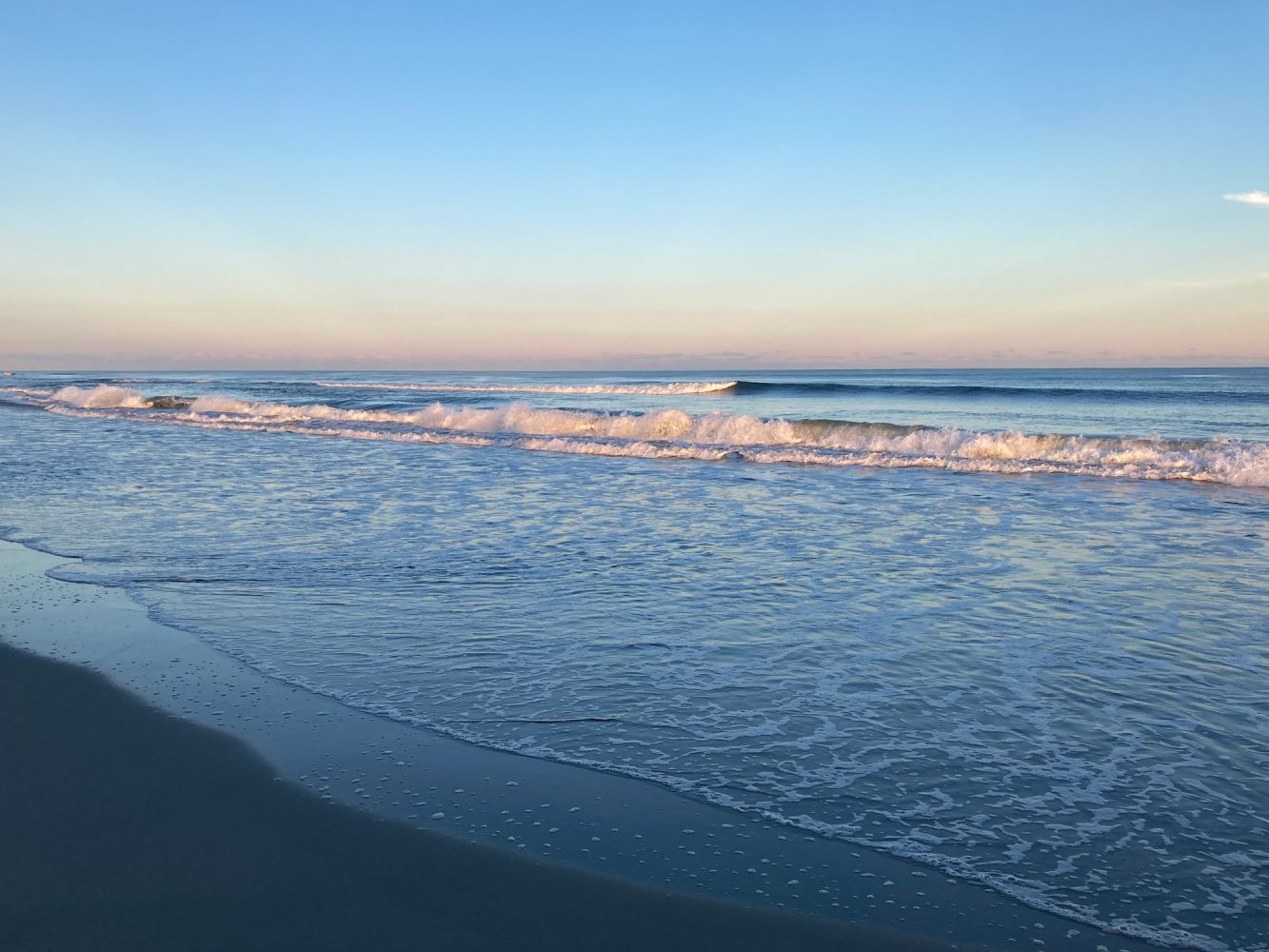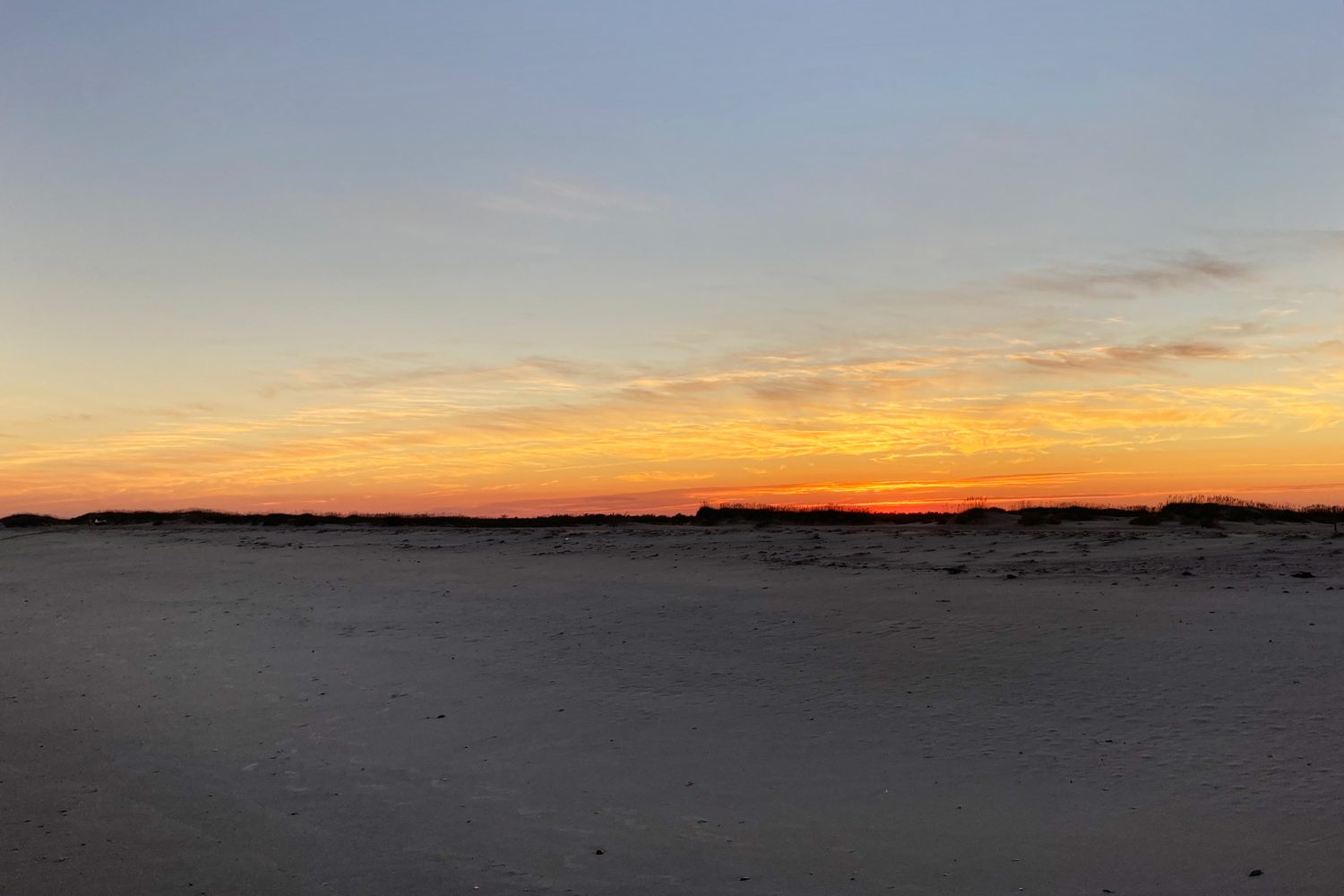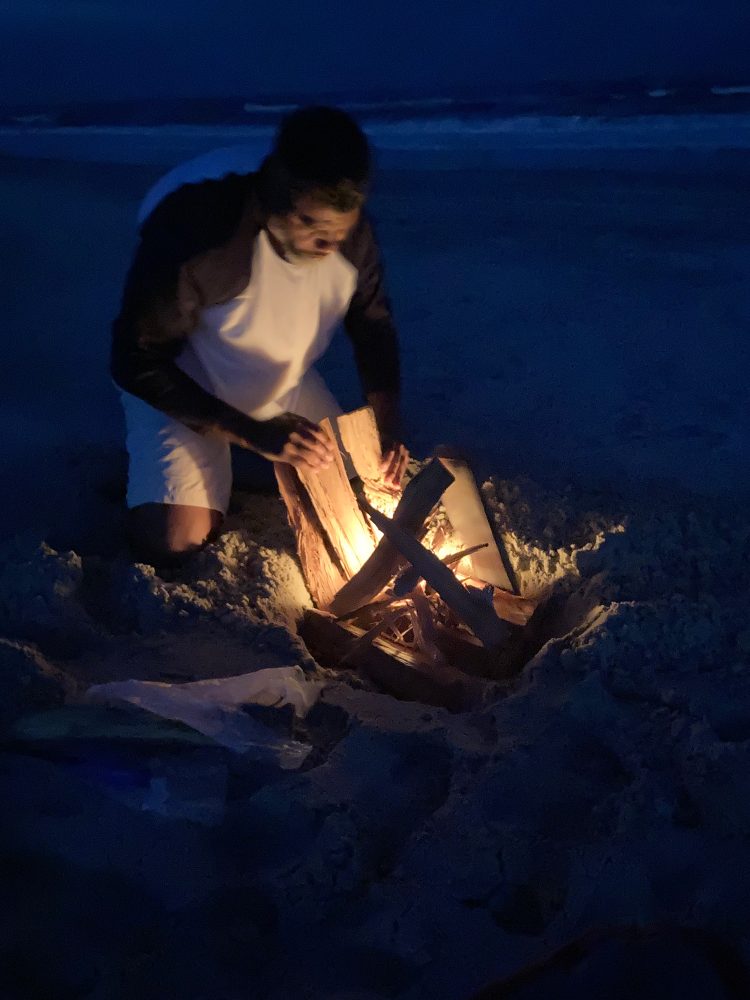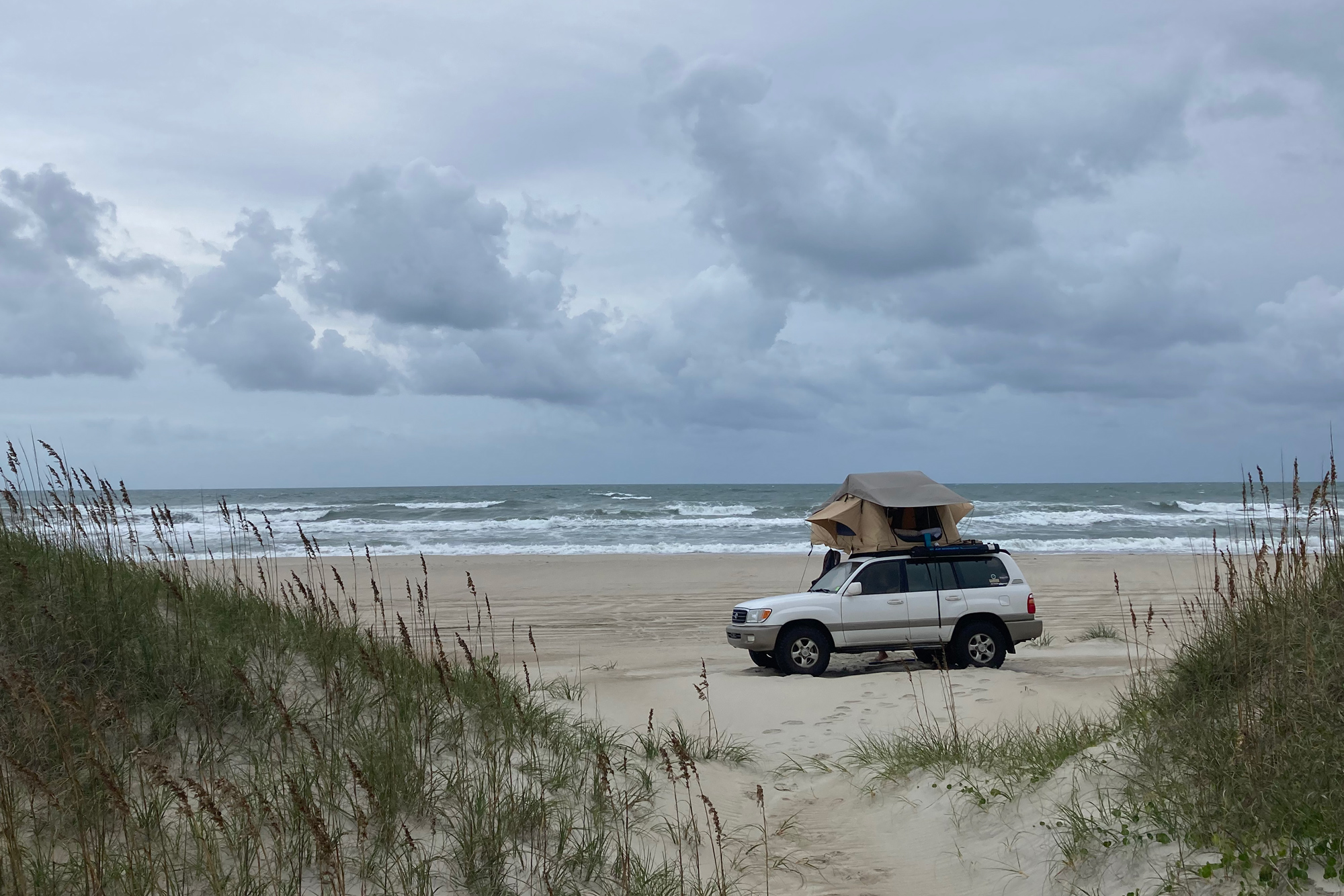On my annual pilgrimage to Cape Lookout, Outer Banks, in my Land Cruiser, Hannibal the Hundy, I found myself contemplating the waves, the dunes, the sunset. I was also struck by the coquina clam, a mollusk that lives in the sand. Being in nature always brings revelations and is one of the main reasons I appreciate time in wild spaces. Humans have much to learn from the animals over which we have been bestowed dominion. Ego has allowed too many of us to see ourselves apart from the world we organic beings inhabit. We claim our dominion but often fail to live up to the stewardship responsibilities that flow from our enormous gift. When I am fortunate to be in these spaces I Leave No Trace, packing out what I pack in. But more importantly, it is my responsibility to listen to the other beings whose paths I cross. Time spent watching the coquina impressed upon me how much we can learn from even a tiny invertebrate animal that lives in a shell.

For the coquina, also known as the pompano shell or butterfly shell clam, life below the surface means shelter and safety. The coquina is a bi-valve shelled sea-creature that lives in the area of the surf wash—the part of the beach where the water flows over the sand after a wave has broken. They are about the size of an adult’s pinky fingernail and inhabit beaches around the world. Large numbers of coquina clams are a sign of healthy waters. When the surf washes over the beach they are exposed, grabbing whatever plankton they can skim from the water before burrowing into the sand to wait for the next wave to serve them.



While the coquina finds safety and comfort just below the surface, it will not thrive if it is not exposed to risk. The urge to live is overwhelming. With the passing of each wave, the coquina may be vulnerable. Our human journey is similarly fraught, but often, it is our vulnerability that opens us up to listening and learning.


The overland traveler consistently leaves comfort zones and pushes themselves into areas that make them exposed, creating the perfect opportunity to share experiences and learn from new surroundings and their inhabitants. Being an unintentional ambassador for Black Americans has created many vulnerable situations for me and others but it has also, I hope, opened many minds. And it brings me to the comfortable knowledge that people are generally the same the world over, albeit with significantly different experiences, cultures, foods, and languages. Each coquina has its own unique experience with the sand, sun, and water that provides its sustenance. And if the coquina could talk to us, it might tell us stories about its frustrations in sharing space, or its perception that it does not receive the same positive attention as its cousins the mussel and scallop. But the human eye sees a beautiful array of colorful shells on the beach. The coquina’s differences are the very thing that we appreciate about them. We should also celebrate the differences in ourselves for they are the variation that creates the beauty that is this human experience.


